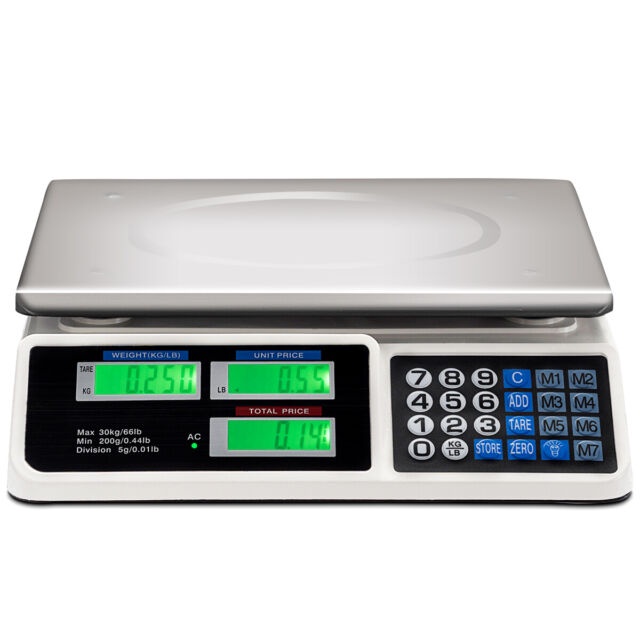In the realm of weighing instruments, two main types stand out: mechanical scales and digital scales. Each type has its strengths and weaknesses, and the choice between them often depends on specific needs, preferences, and the context of use.
Understanding Mechanical Scales
Mechanical scales, also known as analog scales, have been in use for centuries and rely on physical mechanisms to measure weight. They typically consist of a platform where the item to be weighed is placed, a spring system that reacts to the weight, and a pointer or dial that indicates the weight measurement on a scale.
Advantages of Mechanical Scales:
Durability: Mechanical scales are known for their robust construction, often made of sturdy materials like steel or iron, making them suitable for rugged environments.
No Power Dependency: Since they operate without electricity or batteries, mechanical scales are reliable in areas with limited power sources or during power outages.
Simple Operation: They are straightforward to use, requiring minimal training or technical knowledge to obtain weight measurements.
Cost-Effective: Mechanical scales are generally more affordable upfront compared to digital scales, making them accessible to a wide range of users.
Disadvantages of Mechanical Scales:
Accuracy: Mechanical scales can be less accurate than their digital counterparts, especially in cases where precise measurements are required.
Limited Features: They may lack advanced features such as unit conversions, data storage, or connectivity options commonly found in digital scales.
Maintenance: Mechanical scales may require regular maintenance, calibration, and adjustments to ensure accuracy and functionality.
Exploring Digital Scales
Digital scales, on the other hand, are electronic devices that use sensors, microprocessors, and digital displays to measure and display weight accurately. They have become increasingly popular in various industries and everyday use due to their precision and additional features.
Advantages of Digital Scales:
Precision: Digital scales offer high levels of accuracy, often displaying weight measurements down to decimal points or fractional units.
Advanced Features: They come with a range of features such as tare function (zeroing out container weight), unit conversions (e.g., kg to lb), data storage, and connectivity options (USB, Bluetooth) for data transfer.
Easy Readability: Digital displays provide clear and easy-to-read weight measurements, eliminating the potential for misreading analog dials.
Automatic Calibration: Many digital scales feature automatic calibration or self-calibration functions, reducing the need for manual adjustments.
Disadvantages of Digital Scales:
Power Dependency: Digital scales require power sources such as batteries or electricity, which can be a limitation in remote or off-grid locations.
Sensitivity to Environmental Factors: They may be sensitive to environmental factors such as temperature variations, humidity, or electromagnetic interference, affecting accuracy.
Initial Cost: Digital scales tend to have a higher initial cost compared to mechanical scales, although the price gap has narrowed over time with advancements in technology.
Choosing the Right Scale for Your Needs
The decision between mechanical and digital scales depends on several factors:
Accuracy Requirements: If precise measurements are crucial for your application, such as in laboratory settings or commercial transactions, digital scales are the preferred choice due to their higher accuracy.
Features and Functionality: Consider the specific features you need, such as data storage, connectivity, or unit conversions. Digital scales offer a wider range of functionalities compared to mechanical scales.
Environment: Evaluate the environmental conditions where the scale will be used. Mechanical scales may be more suitable for outdoor or rugged environments, while digital scales excel in controlled indoor settings.
Budget: While digital scales may have a higher upfront cost, consider the long-term benefits in terms of accuracy, efficiency, and additional features that may justify the investment.
Conclusion: The Verdict
In the debate between mechanical scales vs digital scales, there is no one-size-fits-all answer. Both types of scales have their strengths and weaknesses, and the best choice depends on individual requirements and preferences.
Mechanical Scales: Ideal for environments where durability, simplicity, and cost-effectiveness are priorities. They are suitable for basic weighing tasks and situations where precision is not critical.
Digital Scales: Recommended for applications that demand high accuracy, advanced features, and convenience. They are well-suited for laboratories, commercial kitchens, pharmacies, and other settings where precise measurements are essential.
Ultimately, the "better" scale is the one that meets your specific needs and delivers reliable and accurate weight measurements consistently. Whether you opt for the timeless reliability of a mechanical scale or the technological prowess of a digital scale, both types contribute to efficient and accurate weighing across various industries and daily tasks.


No comments yet